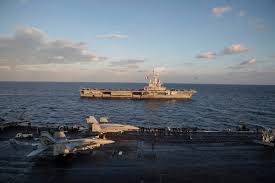Study marks the Mediterranean most "dangerous" to birds living and feeding there
Seabirds are one of the most endangered groups globally.They were thus able to identify where and which bird species are most exposed to and most affected by plastic waste.

- Country:
- India
The Mediterranean has been recognised as the most ''dangerous'' region to bird species that live and feed there, according to a new research measuring plastic pollution in oceans that increasingly threaten marine life.
Along with the Mediterranean, the most dangerous areas for birds are the Black Sea, the Northwest and Northeast Pacific, the South Atlantic and the Southwest Indian Ocean, researchers found.
They analysed 77 seabird species, more than 7000 individuals and 1.7 million positions recorded through remote tracking devices, together with maps of plastic concentration at a global level. Seabirds are one of the most endangered groups globally.
They were thus able to identify where and which bird species are most exposed to and most affected by plastic waste. They have published their findings in the journal Nature Communications.
''The data allows us to conclude that the risk is not uniformly distributed, as a result of the accumulation of plastic in areas where ocean current and tides favour it,'' said Maria Dias, study coordinator and researcher at the Faculty of Sciences of the University of Lisbon (Ciencias ULisboa), Portugal.
Because most of the seabirds are migratory species, they are also distributed in an uneven and highly variable way throughout their annual cycle. Thus, when ''both regions overlap [high concentration of birds and plastic], the risk is much greater,'' said Dias.
The results also showed that species already at risk of extinction are also most exposed to plastic, suggesting that ''if the plastic problem continues to worsen, the already fragile state of these species could get even worse,'' according to Dias.
She said that the results could be used as a tool for the management and conservation of the marine environment by countries worldwide.
However, this did not make the task any easier, she said.
''Most species are at a higher risk of finding plastic in waters away from their breeding jurisdiction, and in international waters.
''This means that international cooperation is essential to solve this problem, imposing dialogue between various actors and increasing the complexity of responses,'' said Dias.
(This story has not been edited by Devdiscourse staff and is auto-generated from a syndicated feed.)
ALSO READ
Narrow Avoidance: Southwest Flight's Close Call at Chicago Midway
Close Call on the Tarmac: Southwest's Takeoff Mishap
Engaging Bihar's Diaspora: NDA's Strategic Outreach
Massacre at Fombita Mosque: Tragedy Unfolds in Southwest Niger
Anxiety and Resilience: Myanmar Diaspora Amidst Earthquake Turmoil










